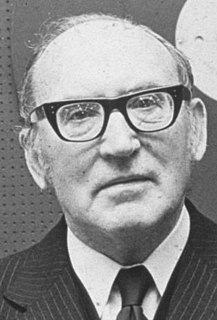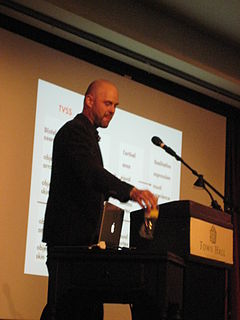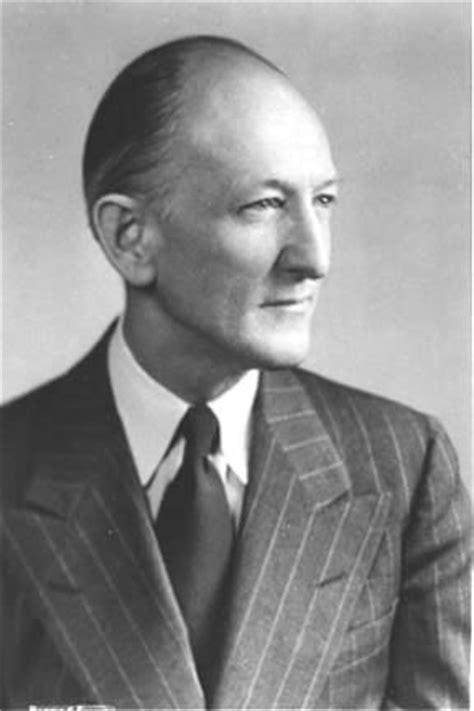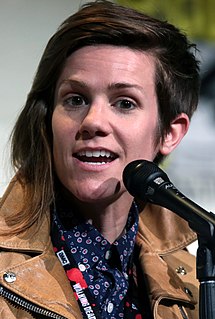A Quote by Maurice Wilkes
The artificial intelligence approach may not be altogether the right one to make to the problem of designing automatic assembly devices. Animals and machines are constructed from entirely different materials and on quite different principles. When engineers have tried to draw inspiration from a study of the way animals work they have usually been misled; the history of early attempts to construct flying machines with flapping wings illustrates this very clearly.
Quote Topics
Altogether
Animals
Approach
Artificial
Artificial Intelligence
Assembly
Attempts
Automatic
Been
Clearly
Construct
Constructed
Designing
Devices
Different
Draw
Early
Engineers
Entirely
Flapping
Flying
Flying Machines
History
Inspiration
Intelligence
Machines
Make
Materials
May
Misled
Principles
Problem
Quite
Right
Study
The History Of
Tried
Very
Way
Wings
Work
Related Quotes
I think that the artificial-intelligence people are making a lot of noise recently, claiming that artificial intelligence is making huge progress and we're going to be outstripped by the machines. But, in my view, this whole field is based on a misconception. I think the brain is analog, whereas the machines are digital. They really are different. So I think that what the machines can do, of course, is wonderful, but it's not the same as what the brain can do.
People must have renounced, it seems to me, all natural intelligence to dare to advance that animals are but animated machines.... It appears to me, besides, that such people can never have observed with attention the character of animals, not to have distinguished among them the different voices of need, of suffering, of joy, of pain, of love, of anger, and of all their affections. It would be very strange that they should express so well what they could not feel.
A multidisciplinary study group ... estimated that it would be 1980 before developments in artificial intelligence make it possible for machines alone to do much thinking or problem solving of military significance. That would leave, say, five years to develop man-computer symbiosis and 15 years to use it. The 15 may be 10 or 500, but those years should be intellectually the most creative and exciting in the history of mankind.
Reversal is something that has been demonstrated in a number of different animals in a number of different ways. I think that's going to translate into larger animals and humans. We won't know until we try. But we are trying 65 different genes in different combinations to see if we can reproduce the aging reversal that we've seen in small animals.
The development of artificial intelligence may well imply that man will relinquish his intellectual supremacy in favor of thinking machines. With oceans of time available for future innovation, there seems to be no reason why machines cannot achieve and surpass anything of which the human brain is capable.
Before I was a vegetarian, I traveled to South Africa and hung out there for a little bit. And they had different animals - did you know different parts of the world have different animals? Because I didn't until I got there! This is what being an American is like. You're like, "Every place has these animals."
Late twentieth-century machines have made thoroughly ambiguous the difference between natural and artificial, mind and body, self-developing and externally designed, and many other distinctions that used to apply to organisms and machines. Our machines are disturbingly lively, and we ourselves frighteningly inert.




































